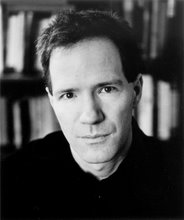“Which short story writers influenced you?”
Isaac Babel
Grace Paley
Donald Barthelme
John Cheever
Anton Chekhov
Vladimir Nabokov
Quels auteurs de nouvelles vous ont influencé ?
Isaac Babel
Grace Paley
Donald Barthelme
John Cheever
Anton Chekhov
Vladimir Nabokov
Traduction de Leïla B.
Inscription à :
Publier les commentaires (Atom)


3 commentaires:
Isaac Babel
Isaac Babel est un écrivain juif d'expression russe, né dans le ghetto juif d'Odessa le 13 juillet 1894, puis fusillé le 27 janvier 1940 à Moscou.
Il étudie à l'école de comerce d'Odessa, tout en étudiant aussi parallèlement la religion juive. Il apprend le yiddish et acquiert une bonne maitrisse de la langue et littérature française.
Il soutient la révolution ruse puis s'engage dans l'Armée Rouge en 1920. Il est dénoncé en 1939 pour avoir dénigré Staline en privé.
Ses oeuvres sont interdites jusqu'à la destalinisation. Les manuscrits saisis lors de son arrestation n'ont jamais été retrouvés.
Isaac Babel fut l'auteur d'une série de nouvelles regroupées dans Cavalerie Rouge, en 1926, récit sur sa participation à la campagne de Pologne dans la Première Armée de cavalerie de Boudionny en 1920. Il fut de même auteur des Récits d'Odessa, écrits en 1927 et publiés en 1931, recueil de nouvelles décrivant avec ironie les petites gens, les bas-fonds et la pègre juive d'Odessa.
Soledad P.
Donald Barthelme (April 7, 1931 - July 23, 1989) was an American author of short fiction and novels. He also worked as a newspaper reporter for the Houston Post, managing editor of Location magazine, director of the Contemporary Arts Museum in Houston (1961-1962), co-founder of Fiction (with Mark Mirsky and the assistance of Max and Marianne Frisch), and a professor at various universities. He also was one of the original founders of The University of Houston Creative Writing Program, a graduate fiction and poetry program which offers MFA and PhD degrees in writing.
Style and legacy
Barthelme's short stories are often exceptionally compact (a form sometimes called "short-short story," "flash fiction," or "sudden fiction"), often focusing only on incident rather than complete narratives. (He did, however, write some longer stories with more traditional narrative arcs.) At first, these stories contained short epiphanic moments. Later in his career, the stories were not consciously philosophical or symbolic. His fiction had its admirers and detractors, being hailed as profoundly disciplined or derided as meaningless and academic postmodernism. Barthelme's thoughts and work were largely the result of twentieth-century angst as he read extensively, for example in Pascal, Husserl, Heidegger, Kierkegaard, Ionesco, Becket, Sartre, and Camus. Certain parallels have also been drawn between Barthelme and Franz Kafka. However, Barthelme's fundamental skepticism and irony distanced him from the modernist's belief in the power of art to reconstruct society, leading most critics to class him as a postmodernist writer.
Story Collections
• Come Back, Dr. Caligari Little, Brown (Boston), 1964.
• Unspeakable Practices, Unnatural Acts Farrar, Straus (New York City), 1968.
• City Life Farrar, Straus, 1970.
• Sadness Farrar, Straus, 1972.
• Guilty Pleasures Farrar, Straus, 1974.
• Amateurs Farrar, Straus, 1976.
• Great Days Farrar, Straus, 1979.
• Sixty Stories, Putnam (New York City), 1981.
• Overnight to Many Distant Cities Putnam, 1983.
• Sam's Bar, Doubleday (New York City), 1987.
• Forty Stories, Putnam, 1987.
Novels
• Snow White Atheneum (New York City), 1967.
• The Dead Father Farrar, Straus, 1975.
• Paradise Putnam, 1986.
• The King, Harper (New York City), 1990.
Camille L.
CERTES
Enregistrer un commentaire